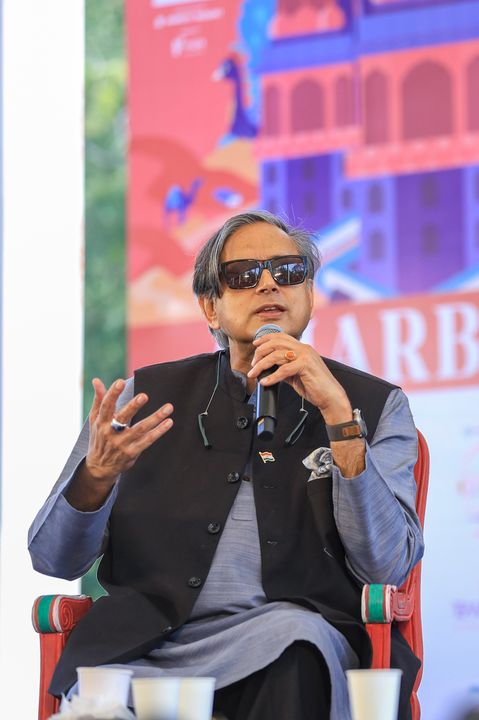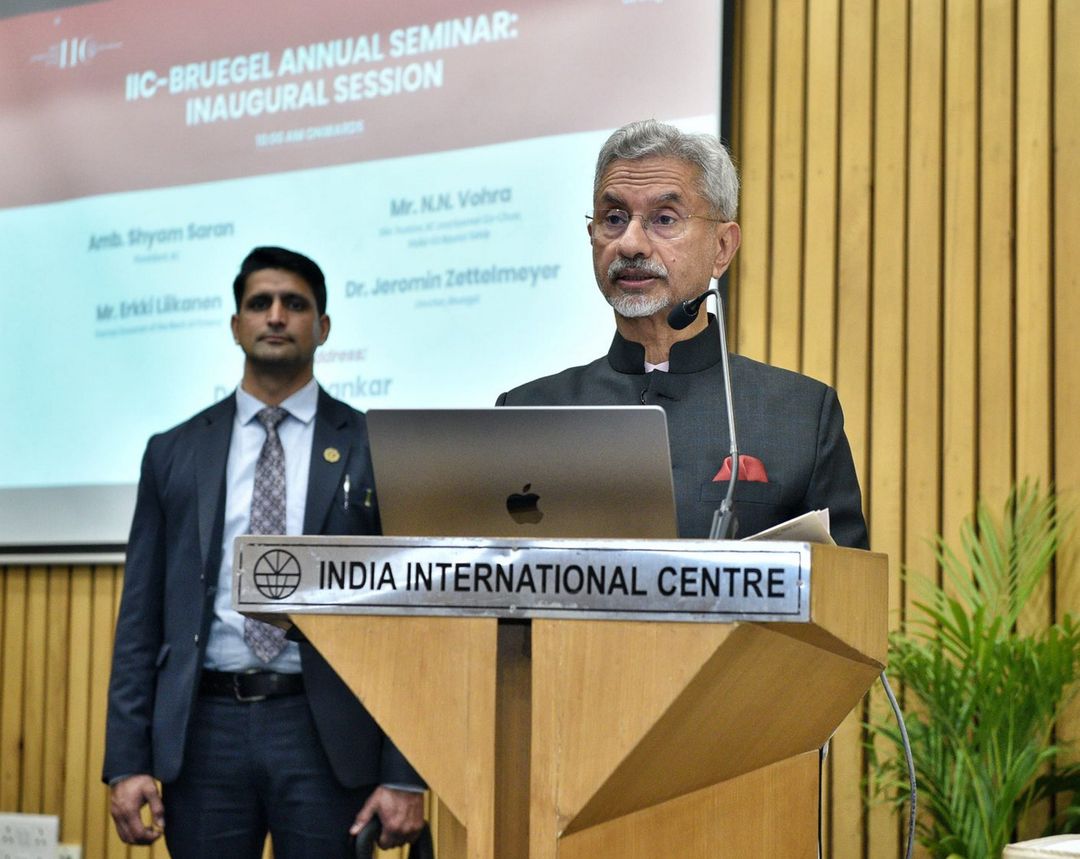Jaipur, Feb 4 (PTI) – Renowned filmmaker Imtiaz Ali, known for his thought-provoking movies like Rockstar and Tamasha, shared his insights on filmmaking and the evolution of his craft during an engaging session at the Jaipur Literature Festival. Reflecting on his journey, Ali likened the films he creates to houses one rents, while the movies he grew up watching are the ones he truly owns.
Ali, whose works have earned a loyal fanbase, particularly for films such as Rockstar and Tamasha, discussed how his movies, though not always successful on their initial release, have gained immense cult followings over time. He spoke candidly about the fervent devotion his films inspire in fans, who often vehemently defend them from criticism.
Addressing the audience, Ali explained, "The films that you make are like houses you live in on rent. But the films that you grew up watching are your own." He passionately defended classic movies like Sholay, saying that if anyone were to criticize the iconic film, he would immediately take issue. "For me, the important films are not 'Tamasha,' 'Rockstar,' 'Highway' – the important films are the ones I watched before becoming a filmmaker. If someone says something wrong about 'Sholay,' I will protest," Ali shared, reflecting on the timeless power of movies that shaped his love for cinema.
He also recounted how Sholay director Ramesh Sippy and actor Dharmendra had little recollection of certain scenes from the film. Ali explained that while filmmakers may not always remember every detail of their own works, the impact of the movies they watched in their formative years is lasting. “The films that you watch are your own. The films that you make are just like houses that you live in on rent,” he added, during the session hosted by film critic Anupama Chopra.
A Filmmaker’s Struggle with Being Ahead of His Time
Ali also spoke candidly about the perception that his films are often ahead of their time, a notion he expressed a desire to change. "I am trying very hard to not be ahead of my time. I want my films to connect with audiences from the very first day of release," he revealed. He acknowledged the common pattern of his films initially underperforming but later gaining recognition as they mature over time. However, Ali made it clear that he was actively working to shift this trend.
"I am trying to learn all the tricks possible to make sure that my films are enjoyed immediately," he said. "It's not about modesty; it's about my inability as a filmmaker to tell the story simply. I want every layer of my movie to be understood and appreciated on the first viewing."
On Storytelling and Simplicity
Ali took the opportunity to address the art of storytelling, citing ancient epics like the Mahabharata and the Ramayana as examples of clear, accessible narratives. “If those texts can be understood by everyone, then my films should be understood too. There’s no rocket science in it,” he said. He expressed his goal of simplifying storytelling, aiming to emulate the clarity of great epics. "I need to develop the ability that great storytellers like Ved Vyas, Valmiki, and Homer had," he added.
On Tamasha and the Burden of Responsibility
The filmmaker also touched upon his 2015 film Tamasha, often hailed by fans for its message of following one's dreams over societal pressures. Ali was careful to distance himself from the notion of offering life lessons or "lectures" through his films. "It's too much responsibility to say that my film is life-changing," he said. "I don’t think I know better than anyone else to be giving advice through my movies. But yes, this is a reflection of a greater truth than my life."
He further clarified that his primary aim as a filmmaker is not to elicit personal responses but to offer an enjoyable experience for his audience. "When the film ends, and the doors open, I hope people leave with smiles on their faces. That’s the only response I am aiming for," Ali concluded.
Imtiaz Ali’s words at the Jaipur Literature Festival highlighted his passion for storytelling, his desire to connect with audiences more immediately, and his enduring reverence for the films that inspired him.
Ali, whose works have earned a loyal fanbase, particularly for films such as Rockstar and Tamasha, discussed how his movies, though not always successful on their initial release, have gained immense cult followings over time. He spoke candidly about the fervent devotion his films inspire in fans, who often vehemently defend them from criticism.
Addressing the audience, Ali explained, "The films that you make are like houses you live in on rent. But the films that you grew up watching are your own." He passionately defended classic movies like Sholay, saying that if anyone were to criticize the iconic film, he would immediately take issue. "For me, the important films are not 'Tamasha,' 'Rockstar,' 'Highway' – the important films are the ones I watched before becoming a filmmaker. If someone says something wrong about 'Sholay,' I will protest," Ali shared, reflecting on the timeless power of movies that shaped his love for cinema.
He also recounted how Sholay director Ramesh Sippy and actor Dharmendra had little recollection of certain scenes from the film. Ali explained that while filmmakers may not always remember every detail of their own works, the impact of the movies they watched in their formative years is lasting. “The films that you watch are your own. The films that you make are just like houses that you live in on rent,” he added, during the session hosted by film critic Anupama Chopra.
A Filmmaker’s Struggle with Being Ahead of His Time
Ali also spoke candidly about the perception that his films are often ahead of their time, a notion he expressed a desire to change. "I am trying very hard to not be ahead of my time. I want my films to connect with audiences from the very first day of release," he revealed. He acknowledged the common pattern of his films initially underperforming but later gaining recognition as they mature over time. However, Ali made it clear that he was actively working to shift this trend.
"I am trying to learn all the tricks possible to make sure that my films are enjoyed immediately," he said. "It's not about modesty; it's about my inability as a filmmaker to tell the story simply. I want every layer of my movie to be understood and appreciated on the first viewing."
On Storytelling and Simplicity
Ali took the opportunity to address the art of storytelling, citing ancient epics like the Mahabharata and the Ramayana as examples of clear, accessible narratives. “If those texts can be understood by everyone, then my films should be understood too. There’s no rocket science in it,” he said. He expressed his goal of simplifying storytelling, aiming to emulate the clarity of great epics. "I need to develop the ability that great storytellers like Ved Vyas, Valmiki, and Homer had," he added.
On Tamasha and the Burden of Responsibility
The filmmaker also touched upon his 2015 film Tamasha, often hailed by fans for its message of following one's dreams over societal pressures. Ali was careful to distance himself from the notion of offering life lessons or "lectures" through his films. "It's too much responsibility to say that my film is life-changing," he said. "I don’t think I know better than anyone else to be giving advice through my movies. But yes, this is a reflection of a greater truth than my life."
He further clarified that his primary aim as a filmmaker is not to elicit personal responses but to offer an enjoyable experience for his audience. "When the film ends, and the doors open, I hope people leave with smiles on their faces. That’s the only response I am aiming for," Ali concluded.
Imtiaz Ali’s words at the Jaipur Literature Festival highlighted his passion for storytelling, his desire to connect with audiences more immediately, and his enduring reverence for the films that inspired him.

